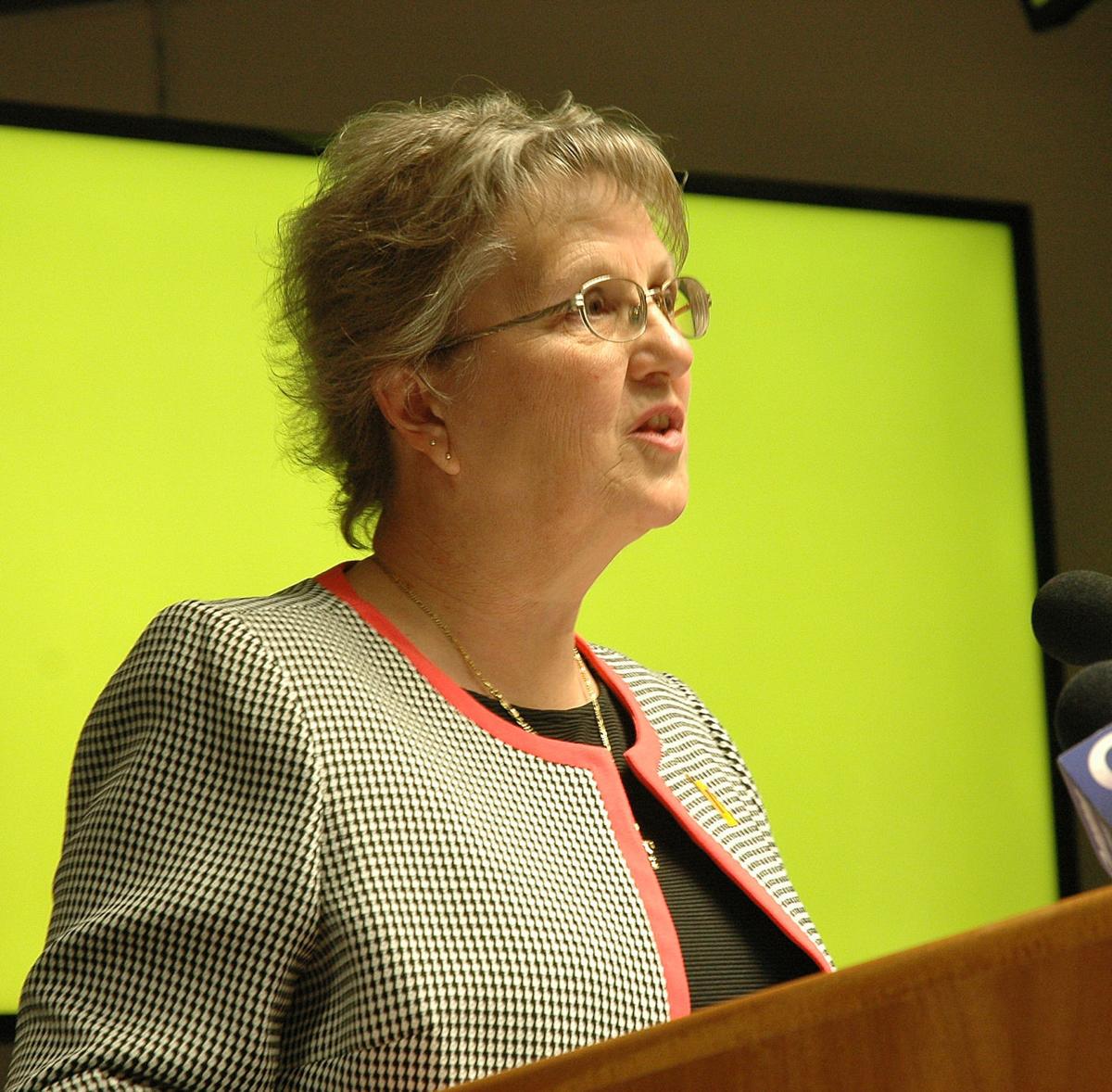PHOENIX — Efforts like Proposition 123 to boost education funding for the next decade may amount to little more than doing just enough to “temporarily placate the public,” the state’s top school official said Wednesday.
In her annual State of Education speech, Diane Douglas said she is glad that lawmakers and Gov. Doug Ducey put the proposal on the May 17 ballot to put $3.5 billion into schools over the next decade. The deal, if approved, would settle a 2010 lawsuit filed by schools after the state ignored a voter-mandated requirement to boost education funding annually to compensate for inflation.
But Douglas, who has refused to take a public position for or against the measure, told the House Education Committee that the funding does not provide the certainty that schools need.
“Just as in the comic Peanuts, Lucy will hold the ball and then yank it away from Charlie Brown at the last minute,” she told lawmakers.
“For education, it is too early to tell if we are only spending enough money to settle a lawsuit and temporarily placate the public, or if we are seriously taking the first step to building the best education system in the nation, right here in Arizona.”
Speaking with reporters after her speech, Douglas said the key is stability.
“We need consistent funding in our schools,” she said. “We can’t have a program that comes in place, stays in place for a couple of years or a year, and then is taken away.”
There are two financial cliffs on the horizon for public schools.
In 2000 voters approved Proposition 301 which hiked the state’s 5-cent sales tax by six-tenths of a cent, with the additional dollars earmarked for classrooms. That’s the same measure which requires annual inflation adjustments.
But that levy, which currently raises about $600 million a year, goes away in 2021.
And the additional $350 million a year that Proposition 123 would put into schools would disappear after 2025.
But Douglas said her concerns about consistent education funding go beyond special programs like those approved by voters. She said dollars can come and go based on “the whims or the program of a particular legislator.”
Efforts to boost state aid to schools have sometimes been hobbled by lawmakers who argue there is no correlation between dollars and educational achievement. But Douglas said there is a link.
Her office came up with a copy of the Arizona Republican newspaper from 1920 that cited a study which ranked Arizona’s education system as the third best in the nation.
That article said Eastern and coast states “paid very low salaries to teachers.”
“Arizona paid big salaries,” Douglas continued, quoting from the article. “Arizona’s standard of men and women demanded the best, regardless of the cost.”
And Douglas, who conducted a statewide “listening tour” last year, said she heard the same thing from voters at that time.
The problem, Douglas told the committee, is not a shortage of people who are certified to be teachers.
“The problem we have is getting them to want to be teachers and be in the classroom each and every day,” she said. Douglas said salaries, which are beyond her control, are a big piece of that.
The schools chief said Arizona is making progress — sort of.
In her first State of Education speech last year she cited the “Quality Counts” report by Education Week. It gave Arizona a D-plus, ranking the state 47th overall in student achievement, chances for success and school finance policy.
Now, she said, Arizona moved up to No. 45, though it still got a D-plus.
“I’m sure you will agree this is hardly cause to celebrate,” she said.
Douglas also gave an endorsement to the concept behind a proposal by Rep. Chris Ackerley, R-Sahuarita, to allow parents to exempt their children from required statewide assessments.
These range from proving proficiency in reading to advance beyond the third grade to the new AzMERIT tests, short for Arizona’s Measurement of Educational Readiness to Inform Teaching, which the state Board of Education has mandated.
“The point of testing is to make sure a student has the knowledge that they need to become successful,” Douglas said.
“It is not about grading our teachers, grading our schools, grading our districts,” she continued. “And if a parent wants to opt their child out, parents are the sole guardian of their children.”





